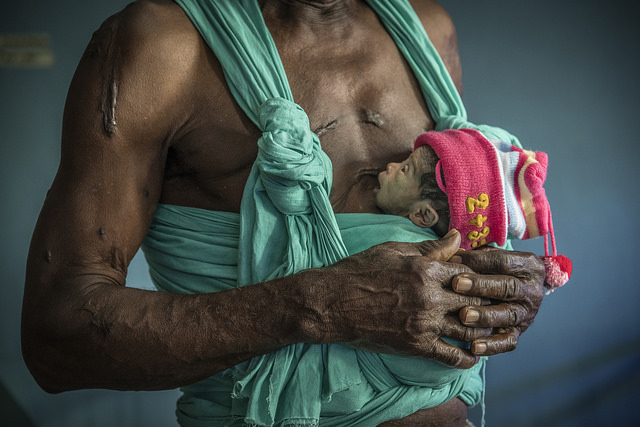Male Engagement and Couples’ Decision-Making
MCSP actively engaged men and promoted partnerships for healthy decision-making among couples in reproductive, maternal, newborn, child and adolescent health (RMNCAH) services. Men play a key part in their own and their family’s health, yet they are often neglected in outreach and service delivery. The involvement of fathers before, during and after the birth of a child has been shown to have positive effects on violence reduction, improved maternal health outcomes, breastfeeding, the use of contraceptives and health services, and fathers’ long-term support for their children.
In many countries, men make most decisions about sexual behavior, family size, whether to give birth in a facility or at home, care for children, the allocation of household assets, and the division of household labor and caregiving. Engaging men as clients, supportive partners, and champions of gender equality can contribute to improvements in gender equality, couples decision-making, and the utilization of maternal health services. This in turn leads to better health outcomes for men, women, and their families.
MCSP engaged men and couples by:
- Building the capacity of providers to engage men in counseling and health services, and to work with their partners to decide family size and create birth plans;
- Encouraging facility improvements such as privacy screens in labor and delivery wards, and sensitization of providers to allow women to bring their partners into the delivery room if they choose to do so; and
- Facilitating couple and community dialogues to transform harmful gender norms that act as barriers to positive RMNCAH outcomes.

